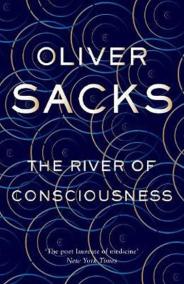River Of consciousness
Dátum vydania: 19.10.2017
In his previous books, Oliver Sacks had addressed questions of the brain and mind through the lens of case histories of individuals with neurological disorders. Recently, however, he had been reflecting on his experiences with such patients in the context of a lifetime of medical practice, and in light of recent neuroscientific evidence and theories. The ...
Detaily o knihe
Počet strán: 237
Rozmer: 152x234x19 mm
Hmotnosť: 345 g
Jazyk: Anglicky
EAN: 9781447263661
Rok vydania: 2017
Žáner: Angličtina - beletrie
Typ: Paperback
Zákazníci, ktorí si kúpili túto knihu, si kúpili aj...
O knihe
In his previous books, Oliver Sacks had addressed questions of the brain and mind through the lens of case histories of individuals with neurological disorders. Recently, however, he had been reflecting on his experiences with such patients in the context of a lifetime of medical practice, and in light of recent neuroscientific evidence and theories. The River of Consciousness will be a broader and more direct look at how the brain and mind work, as always, incorporating Sacks' rich historical and personal context. Advances in neuroscience have revolutionized our ability to visualize the brain in action. For the first time we are able to close the gap between the philosophical questions which have consumed the world's thinkers since the eighteenth century and the true physiological basis of perception and consciousness. In The River of Consciousness, Sacks will examine questions of memory, time, and consciousness. How do we think, how do we remember? Do different individuals have different speeds or ways of thinking? Is memory reliable? How do the neural correlates of memory differ for true memories and false memories? How do we construct our sense of time, our visual world? What is consciousness, neurologically speaking? And most importantly, what is creativity? Sacks completed the research for this book before he died, and with instructions on how it was to be put together. This is a remarkable culmination of a lifetime's research into the way the brain works













